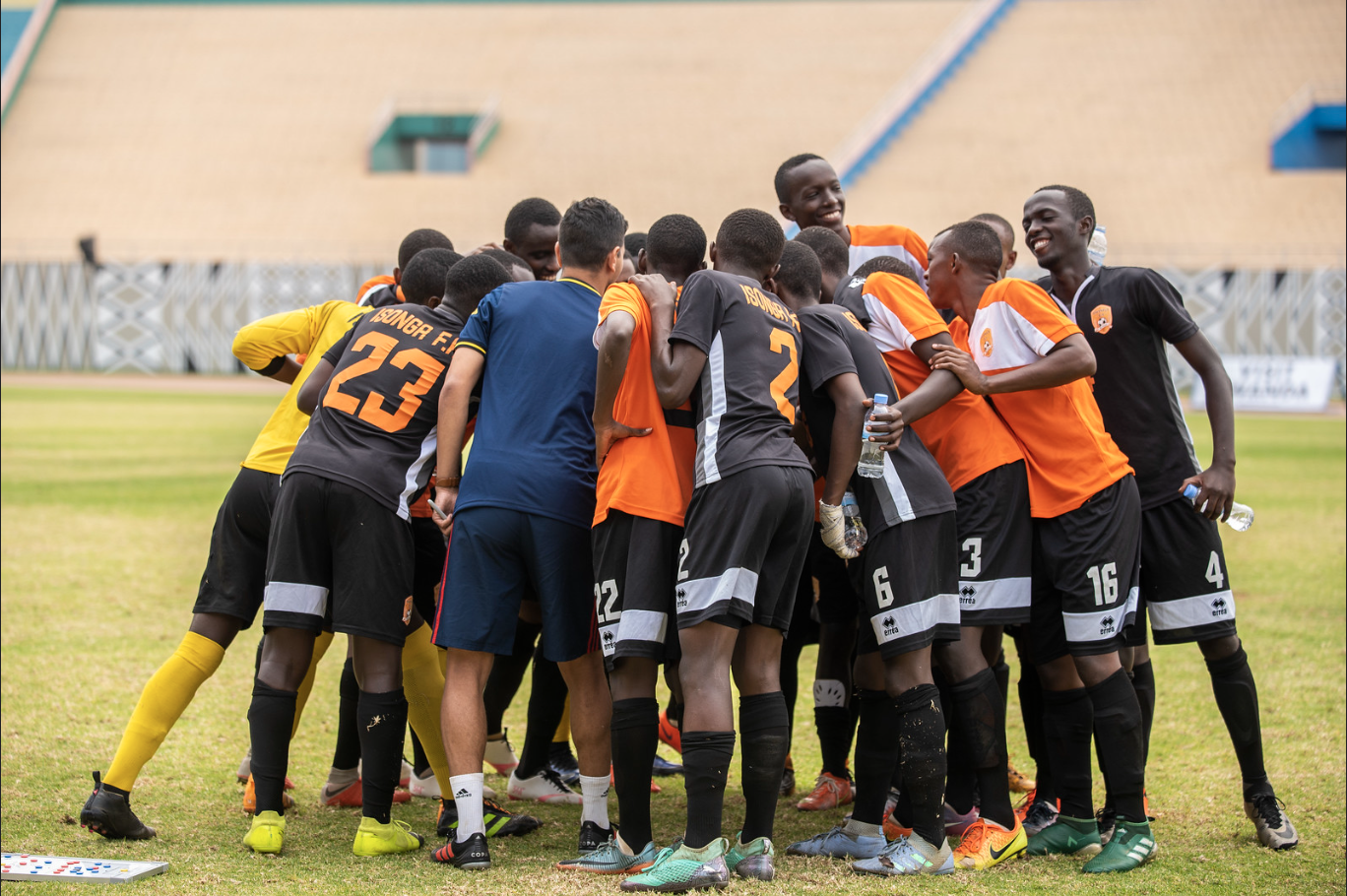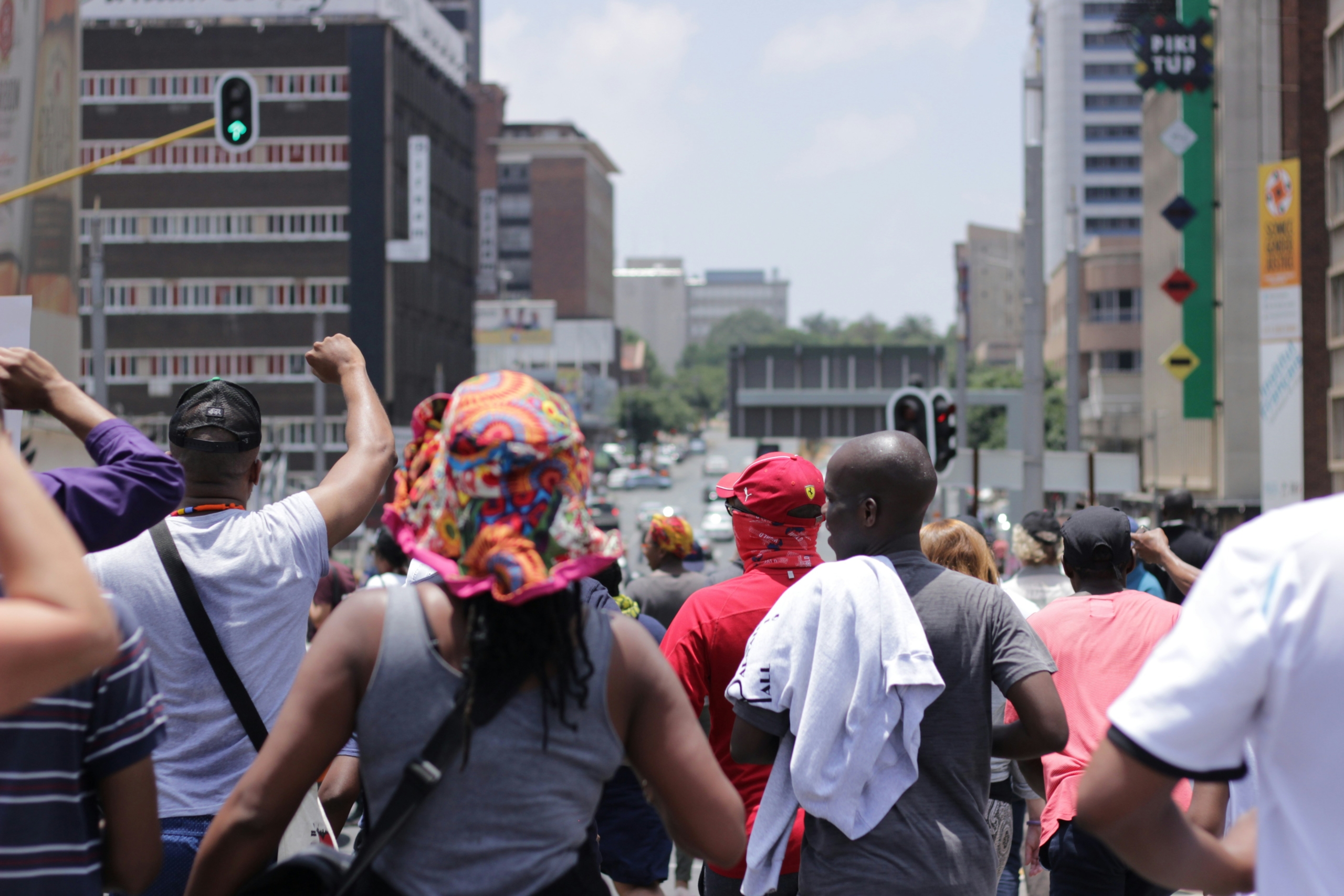We are excited to announce that Brink is now part of Africa Practice. Learn more
Rwanda’s sports diplomacy strategy reflects shifts in the global order

As Lionel Messi lifted the World Cup in December 2022, he was cloaked in an Arab bisht – or traditional cloak – in a visible manifestation of ‘sportswashing’. This concept, which was among the top ten words of 2022 in the Collins Dictionary, refers to “the sponsorship or promotion of sporting events in order to enhance a tarnished reputation or distract attention from a controversial activity.” Messi’s cloaking speaks to Qatar’s efforts to leverage sports and mega-events to build soft power and political influence, projecting messages to the world and building legitimacy.
Messi’s World Cup triumph wasn’t the first time he had become enmeshed in sportwashing. The player has had ‘Visit Rwanda’ emblazoned on his training top for Qatari-owned Paris Saint-Germain since 2021. In this case, two small but influential countries were actively collaborating to use sport to build soft power. Rwanda’s tourism board has committed over USD 100 million sponsoring both Arsenal and PSG, in one of the most expensive sponsorship deals in football.
Rwanda strengthens its sporting credentials
But this is just the tip of Rwanda’s sporting ambitions. The country also serves as the home of the NBA’s Basketball Africa League Playoffs, convenes FIFA’s annual congress, and will host the 2025 World Cycling Championships.
Sponsoring and hosting sports events are becoming an increasingly prominent part of Rwanda’s diplomatic repertoire, especially as it has not yet produced a team or athlete capable of drawing global attention.
Externally, the country uses these events to reshape its image as an emerging, dynamic African destination, challenging associations with the 1994 genocide. Domestically, the focus on international sports allows the country’s president, Paul Kagame – in office since 2000 and at the centre of power since 1994 – to endear himself to his national population.
On both fronts, sports diplomacy enables Rwanda to shift the debate away from its governance record, complicating critiques of media repression and electoral manipulation, by displacing negative commentary with more positive images. However, Rwanda’s sport diplomacy is also tied closely to President Kagame and efforts to disrupt critiques of his “benevolent” autocracy.
Contradictions in Kigali
Kagame is at pains to stress his reliance on technocratic expertise to transform Rwanda’s economy and the importance of inclusivity, with a parliament that sets a global standard for gender representation. He has also pursued innovative strategies to position Rwanda as an alternative service hub for the region, viewing its limited natural resources as an asset rather than a limitation.
However, Rwanda’s lavish sponsorship of Kagame’s favourite club, Arsenal, has been criticised on account of its extravagance for a state which still struggles to meet some of the basic needs of its population. The move places Kagame’s technocratic image at stake, with his gamble that sports diplomacy will pay off over the long-term rather than coming to highlight an apparent disconnection from everyday life, as might be the case in Qatar and other emerging sports powers.
Not that Kagame would shy away from international critiques of Rwanda positioning itself at the vanguard of a growing African sports economy. The president presents himself as a post-colonial leader, and is often vociferously critical of the West, its alleged hypocrisy and its human rights record. The irony that Rwanda relies on Western donors for 70% of the country’s budget and is involved in deportation schemes and offshore asylum processing is not lost on many critics.
To this end, Rwanda’s sports diplomacy strategy looks to globalise sporting institutions with a traditionally Western focus, while Kagame is ready to defend both his country and its participation in such institutions by highlighting his accuser’s hypocrisy.
Sports and its contests
While Rwanda’s sports diplomacy reflects domestic political dynamics, and the centrality of Kagame, sportswashing takes account of shifts in global politics. The rise of the term sportswashing has risen at a time of increased contestation of global power and the credibility vacuum that encourages outlying states to embrace the strategy.
Sports being incorporated as part of a political strategy is nothing new. Many of the sports with the greatest global reach were originally soft power tools used to project superiority and instil cultural values in colonies. For example, in the 19th and 20th centuries, cricket was seen as a key vehicle to transmit “British values” on civility and the benefits of colonial rule to indigenous populations. As teams such as the West Indies began to upend power relations by defeating their colonial counterparts on the pitch, the sport became a tool of resistance and empowerment that crystallised national identities.
Sports, now situated in a hyper-commercialised context, continue to be an important way of cultivating soft power for emerging and outlying states at times of increasing geopolitical competition. What is new are the perceptions of it, the actors leveraging it, and the reactions to it – all of which can illuminate changes in the political context we inhabit.
In a world characterised by geopolitical tensions and rivalries, and a rising number of actors, the shadows cast across the globe by normalcy and criticality have begun to shift. Established institutions, usually accepted uncritically as part of the status quo, are being stress-tested by scrutiny, while emerging powers, usually seen through a critical lens, are being granted a reprieve. As Rwanda looks to position itself at the heart of Africa’s growing sports economy, Kagame’s regime is likely to capitalise on this highly contested environment to bolster its reputation and establish more positive cultural associations in the minds of sports fans.
About the author
Lami Mabifa is an Associate Consultant at Africa Practice and works with various clients across the continent, conducting research, providing analysis and insights, and supporting stakeholder engagements. He can be reached at [email protected].
Proud to be BCorp. We are part of the global movement for an inclusive, equitable, and regenerative economic system. Learn more


